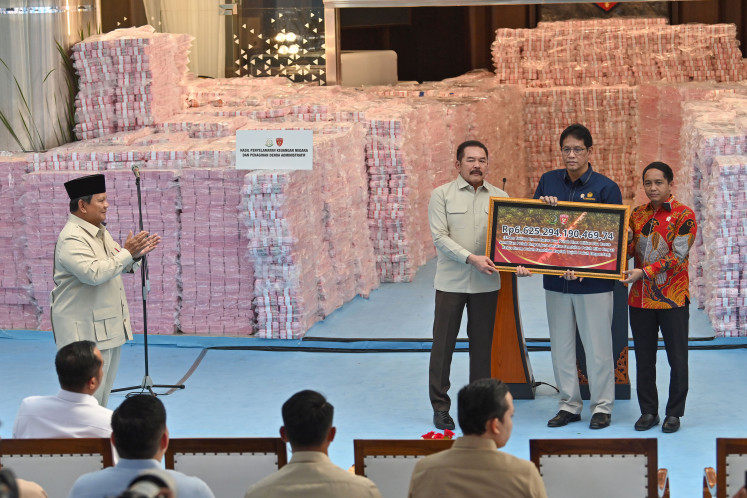Popular Reads
Top Results
Can't find what you're looking for?
View all search resultsPopular Reads
Top Results
Can't find what you're looking for?
View all search resultsFocusing budget allocations on well-being
By adopting the well-being budget approach, Indonesia will achieve people’s well-being in a more systematic and focused way. #opinion
Change text size
Gift Premium Articles
to Anyone
M
any economists have criticized policymakers for focusing on gross domestic product (GDP) as the measure of success for the development of a country. They argue that macroeconomic indicators do not reflect the well-being of the whole population, which is the primary goal of the government.
Joseph Stiglitz, and economist and Nobel laureate, said GDP was not a suitable device for measuring well-being, because increasing GDP may not always be followed by an increase in living standards.
As a common understanding, GDP only represents the market value of all goods and services produced by the whole economy. It does not take into account what’s good for the lives of people, such as health and education, environmental quality and leisure. Therefore, the increase in GDP does not necessarily equate to how people perceive economic conditions on a personal level.
In fact, disappointment with GDP as a measure of success has a long history. In 1968, United States senator Robert F. Kennedy said the GDP measured everything except what made people’s lives worthwhile.
To develop a better measure, in 2008, then-French president Nicolas Sarkozy initiated an International Commission on the Measurement of Economic Performance and Social Progress.
This commission consists of prominent economists, including Stiglitz, who created a report entitled Mismeasuring Our Lives: Why GDP Doesn’t Add Up. The report provides a comprehensive measurement of economic activities, including welfare, sustainability, savings and wealth and environmental conditions.
Developing macroeconomic measures that deal directly with people’s well-being does not automatically solve the real problems. The remaining challenge is to ensure that state policy and budget spending serve social welfare.

















